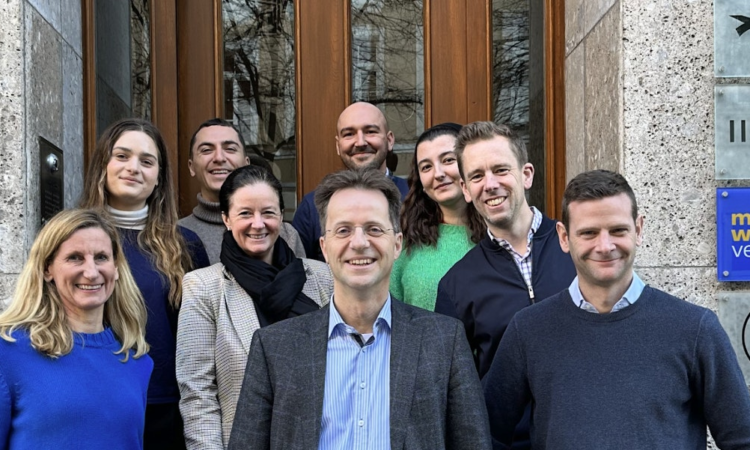
Munich-based Matterwave Ventures is today announcing a €75m first close of a new €150m fund to back European industrial deeptech startups.
Matterwave’s investors include the European Investment Fund, LfA Bayern and NRW Bank as well as industrial companies, foundations and family offices.
The money will be used to back 20-25 companies, with initial ticket sizes ranging €1m-4m, and up to €10m in follow-on rounds (around half of the fund will be reserved for follow-ons). Matterwave is part of generalist VC firm btov Partners (known for backing DeepL and SumUp), and was formerly known as btov Industrial Technologies before rebranding last year. Its last fund was a €100m vehicle launched in 2019.
The fund says that it’s the first of its kind investing in industrial deeptech across Europe, and not just in one country.
Areas of interest
Matterwave will continue to invest in the types of technology it backed with its last fund:
- Enterprise automation
- “Frontier tech” (which has previously included tech like photonic and quantum processing)
- Future of production
- Sensor-powered technology
- Resource efficiency
Matterwave is especially keen to back startups working on resource efficiency — which includes tech like carbon capture and wind farm optimisation — with this latest fund. In June 2022 the fund hired a new partner, Ines Kolmsee, to bring in expertise from the manufacturing and energy industries (she previously held senior positions at a steelmaker and a German utility company).
One area that Kolmsee particularly wants to see pitches in is industrial heat capture. Matterwave’s founding partner Christian Reitberger sits on the board of Orcan Energy — which turns heat from factories into sustainable energy — and Kolmsee says there are lots more applications for heat capture tech that she “finds hugely interesting”.
Reitberger adds that part of the reason for focusing on resource efficiency with this new fund is down to the maturing climate tech investment landscape.
“We have been waiting for co-investors to join the party,” he explains. “These are sometimes more capital-intensive experiments and we need to be able to syndicate these deals and follow-on finance them. That is now possible with the emergence of new climate tech funds.”
A different context
Reitberger says that a wider effort from European policymakers to provide capital for strategic deeptech — part of the continent’s drive for so-called tech sovereignty — helped with the fundraising process this time around.
“We were pretty exotic in our last fund generation,” he says. “There’s been a realisation that Europe really needs to get its act together to regain technology sovereignty — in every sector from semiconductors to clean energy.”
Matterwave is one of a select number of VC firms staffed by investors with genuine technical know-how, with the majority of the eight-strong team holding degrees in areas like engineering or physics. Reitberger — who has a PhD in physics from the University of Vienna and worked at the CERN research laboratory — also says that many generalist VCs have historically stayed away from deeptech due to the long-term timescales involved in scaling these businesses.
“Deeptech is not like generic B2B SaaS, because success is not linear,” he argues. “It’s not like you immediately acquire customers and then scale them. In our businesses there’s a much longer slog to get the product ready and it can be six or seven years where zero revenue happens.”
That said, Reitberger believes that there’s still a huge opportunity to be realised in modernising Europe’s industrial sector — that he claims makes up around half of the region’s GDP — as it comes under increasing pressure from rivals in the US and China.
“Europe has this fantastic industrial base which we need to defend — it is under severe threat,” he says, “That is where we come in, we find and nurture those technologies that can help European industry thrive.”
Tim Smith is senior reporter at Sifted. He tweets from @timmpsmith






